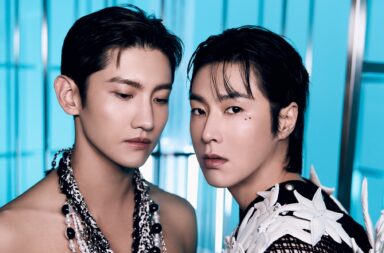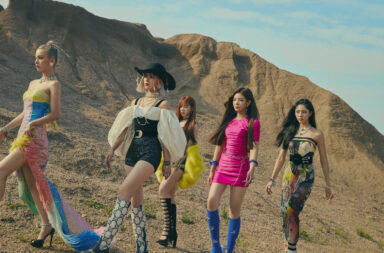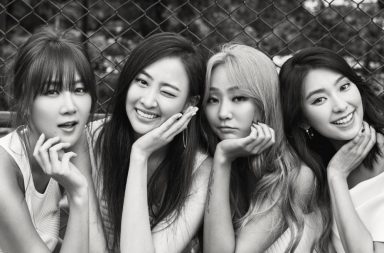We’re back with another edition of Seoulbeats Roundtable, and this week we’re talking about K-pop and Korea’s Ministry of Gender Equality and Family, who is responsible for banning and censoring anything in the media deemed “inappropriate” for public consumption. Recently, the MOGEF blacklisted several artists, their songs and their music videos, as “dangerous materials” for 2012. They have been criticized by the Ministry for having employed dangerous actions and behaviors and have, in effect, been censored. Censorship is defined as the suppression of public communication that would negatively affect society. Regardless of whether these specific instances are in the right or wrong, is censorship acceptable (considering K-pop’s audience and typical audience behavior)? And is it more of a harm or good to society?
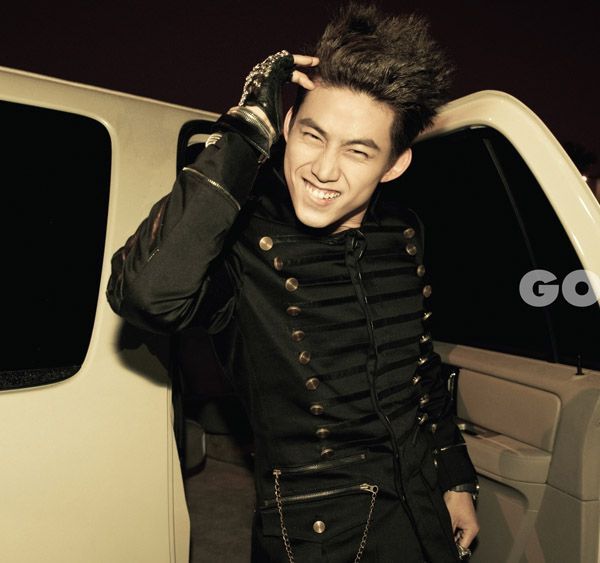 Nabeela: I don’t think censorship is a bad in thing in K-pop, especially since the majority of audiences are younger people and kids. We deal with censorship all the time, and if we really want the real deal behind censored music, we can always buy albums directly. MOGEF is a slightly different story. Their form of censorship usually boils down to noticeable change in lyrics (versus censoring parts of words of a song).
Nabeela: I don’t think censorship is a bad in thing in K-pop, especially since the majority of audiences are younger people and kids. We deal with censorship all the time, and if we really want the real deal behind censored music, we can always buy albums directly. MOGEF is a slightly different story. Their form of censorship usually boils down to noticeable change in lyrics (versus censoring parts of words of a song).
The major problem that comes into play here is the fact these songs are meant to be promoted non-stop for a period of time. If a song you had been enjoying during a comeback suddenly gets picked up by the MOGEF, who imposes changes in lyrics and choreography, that song may not be as enjoyable as it first was. Take, for example, DBSK‘s “Mirotic” lyrics that were changed from “Under my skin” to “under my sky,” as well as 2PM‘s lyrics that were changed from “Get your drinks up” to “get you dreams up.” I know the MOGEF has good intentions, but seriously? To me, what MOGEF is doing is not censorship. They’ve exercised the power to rework lyrics, all of which were thought out and articulated by someone with some artistic vision. MOGEF is just trying to make sure everything on daytime music shows is family appropriate. And in saying that statement in words makes it an understandable intention — no harm, no foul.
But what MOGEF does is rather inappropriate. In one sense, we know they’re regulating creative freedom on behalf of an entertainment company. But in reality, since nothing in K-pop is about creative freedom, it can even be argued that MOGEF is inadvertently regulating the business that is K-pop. Even as a business, music can be subject to censorship. Thats fine, that makes sense. But regulation? That’s too much.
Ree: I’m not completely opposed to censorship when it’s for the matter of keeping things PG, and I definitely to think there should be restraints on what children are allowed to view/hear (call me conservative, but heh). But the issue I have with the MOGEF is less their intentions, and how they’ve turned censorship onto such laughable cases, thereby completely desensitizing the audience to what actual offensive material is. They’re abusing the right to censor.
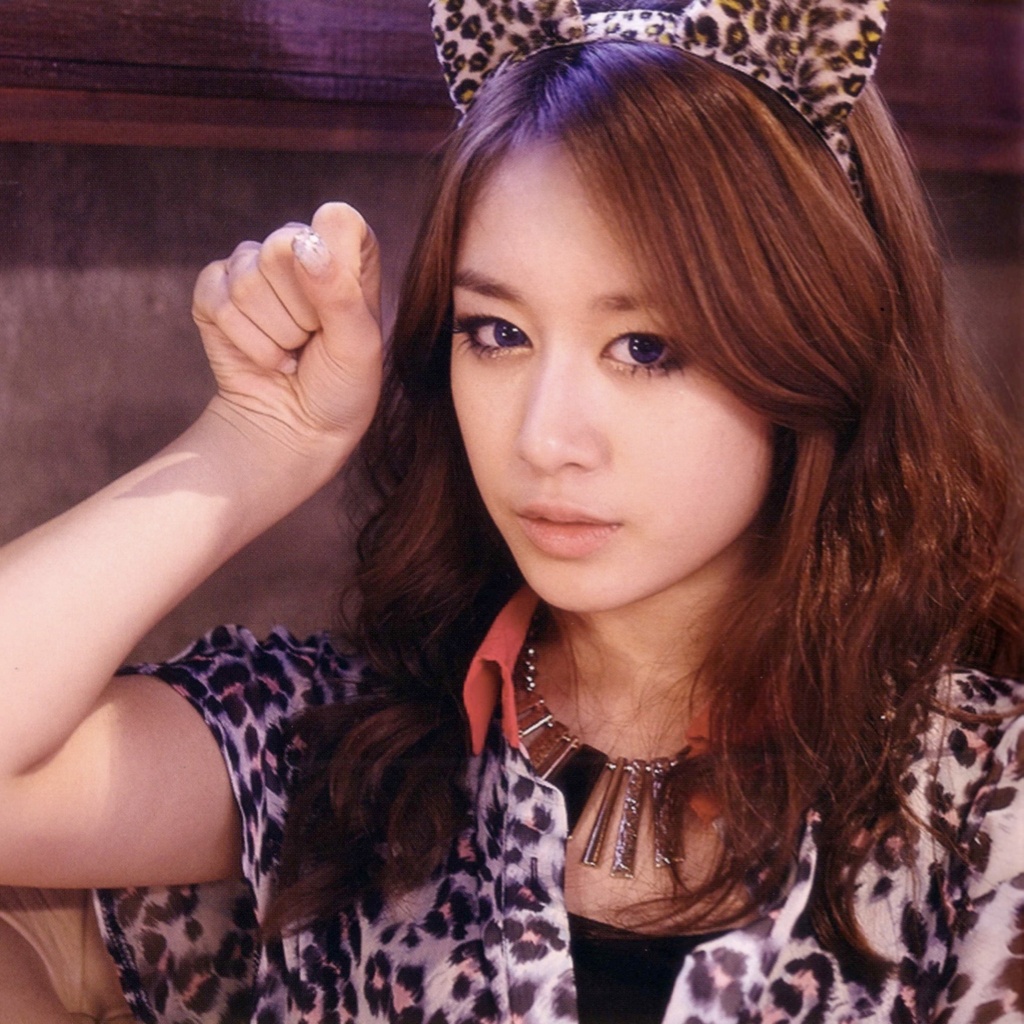 In the case of MOGEF, I don’t even think the argument is whether or not censorship is ‘acceptable’. I think the argument is whether or not what they’re censoring is even worth being censored. When it’s things such as the music videos for “Abracadabra” or “Bo Peep Bo Peep“, or E.via‘s song “Oppa Can I Do It“, I genuinely don’t have a problem with the MOGEF slapping on a rating, because I can see where they’re coming from. But when they ban things with even a mention of alcohol, or banning G.NA‘s song “Banana” on the grounds of the line “I’m going bananas” being inappropriate, that pisses me off because it clearly shows that the MOGEF act out of ignorance more than anything else.
In the case of MOGEF, I don’t even think the argument is whether or not censorship is ‘acceptable’. I think the argument is whether or not what they’re censoring is even worth being censored. When it’s things such as the music videos for “Abracadabra” or “Bo Peep Bo Peep“, or E.via‘s song “Oppa Can I Do It“, I genuinely don’t have a problem with the MOGEF slapping on a rating, because I can see where they’re coming from. But when they ban things with even a mention of alcohol, or banning G.NA‘s song “Banana” on the grounds of the line “I’m going bananas” being inappropriate, that pisses me off because it clearly shows that the MOGEF act out of ignorance more than anything else.
What’s the point of banning songs that mention alcohol when you have K-Drama characters acting drunk every other episode and when Koreans themselves are all over their soju? In the cases of songs such as “Mirotic” — who are the MOGEF attempting to protect by banning it? Impressionable children wouldn’t have understood the sensual meaning of the song, teenagers aren’t as naive as the MOGEF would like to believe, and adults are perfectly adept at handling a scandalous line such as “I got you under my skin.”
What’s more is them slapping on the 18+ (or 19+) rating for such frivolous reasons. Fifteen year old DBSK and 2PM fangirls are going to listen to the music regardless, and the 18+ tag to them will eventually become a novelty, something they won’t take seriously. So when something that’s genuinely vulgar or ‘dangerous’ comes up with, the 18+ tag will have been rendered meaningless. And when a song actually is released, and young kids see the 18+ stamped on front of it, they’re going to take it with a pinch of salt.
Gil: There is no such thing as true freedom of speech; limits exist (especially in the case of minors), so slapping a warning on the CD and preventing minors from buying it is not some flagrant violation of our basic rights.
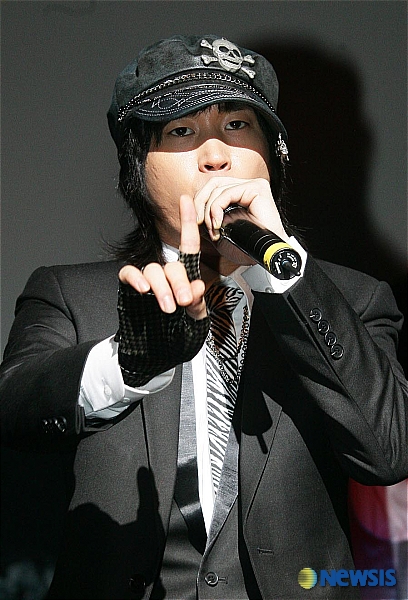 But changing the actual lyrics of a song? Granted, the K-pop music industry really isn’t always about the lyrics, but that kind of government intervention on a song by changing the lyrics is too much. While a government reserves the right to prevent it from being broadcast at a certain time, changing the lyrics is overstepping its boundaries.
But changing the actual lyrics of a song? Granted, the K-pop music industry really isn’t always about the lyrics, but that kind of government intervention on a song by changing the lyrics is too much. While a government reserves the right to prevent it from being broadcast at a certain time, changing the lyrics is overstepping its boundaries.
And as Ree stated, a lot of the songs that get banned are banned for references to drinking, even if it is the slightest of references to drinking. It’s amusing to see MOGEF ban songs for references to alcohol when South Korea has a prominent drinking culture. A Korean friend of mine called Korea “The Irish of East Asia.”
But censorship doesn’t really inhibit the artist. I was watching an interview with Tablo on CNN where he says that the bans on his albums give him publicity. Kids want to know what is on this CD that caused the government to ban, and then they get exposed to his music.
Also, banning the sale of CDs for people under 19 might have an impact, but I know that South Korea has a large pirating network and a lot of songs are illegally downloaded. So there’s not really a big issue of obtaining the CDs either.
Fannie: I pretty much agree with what Ree said.
I think censorship can be a good thing, but only if used under the right conditions. The reason why MOGEF’s actions seem so ridiculous to so many of us isn’t because of the fact that censorship itself is being utilized, but rather that it’s being used improperly and towards the most ridiculous things.
Instead of arbitrarily banning silly pop songs, the government or ministry should instead be looking at ways to actually address society itself. Children are going to be far more influenced by what they see and experience in their day-to-day life (for example, Korea has a large drinking culture, and therefore there are high numbers of incidences of public drunkenness) than some silly song lyric about drinking at a club.
Essentially, I think that their time and energy would be better spent on thinking of how to solve the sources of the problem, rather than its symptoms. The symptoms of a problem will always come back if the source itself isn’t fixed.
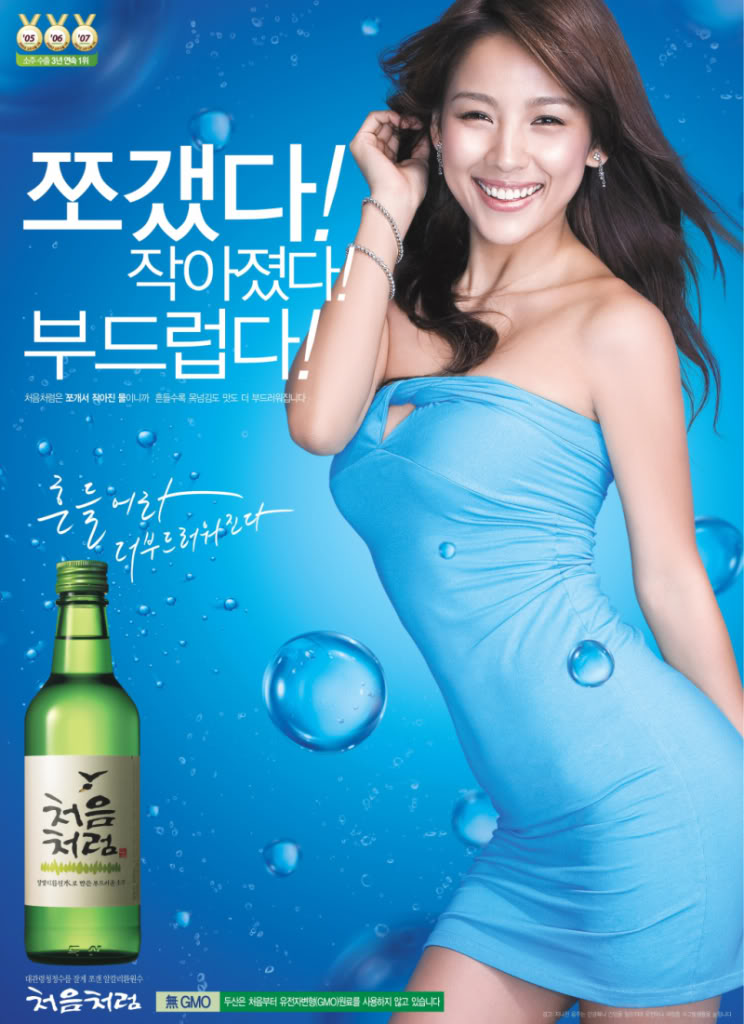 Gil: I don’t think censorship is a good thing per se; however, it’s necessary for the protection and safety of the public. Nevertheless, the word censorship generally has a negative connotation. While there have been studies that show the correlation between violent media and aggressive behaviors, those are just correlational studies and do not prove that it is cause and effect.
Gil: I don’t think censorship is a good thing per se; however, it’s necessary for the protection and safety of the public. Nevertheless, the word censorship generally has a negative connotation. While there have been studies that show the correlation between violent media and aggressive behaviors, those are just correlational studies and do not prove that it is cause and effect.
MOGEF isn’t just an organization which “protects the national psyche” a la censorship, but it has a huge part in creating policies to try and promote equality for women and protect youth. They try to achive their objective by banning songs. They have the best of intentions, but they seem to be ignorant of the real problem. Many societal issues are not solved by changing a couple of words to a K-pop song. You have to go to the root of the problem.
Nabeela: Fannie brings up a good point — bodies like MOGEF should be addressing society itself. While I agree with that, I don’t necessarily think MOGEF is the wrong for trying to get their hands around the music industry. Obviously, I don’t think censoring songs is the right way about this, but if we’re going to start assessing where the MOGEF should be involved, I think the pop scene is where they should be.
Gil hits the nail on the head with this one when she said that MOGEF is ignorant of real problems. Though I doubt they are not entirely ignorant, you know somebody somewhere is turning a blind eye to the situation of young idols, and if anyone has the power to step in under the right pretenses, it sounds like MOGEF would be the organization to do so. There are thousands of young kids who get involved with and live at the mercy of the K-pop music industry everyday, that are taken advantage of and subject to cruel working hours, abnormal work ethics, and strict diets at an age where their physical and mental faculties are still developing. Where is MOGEF is in those situations?
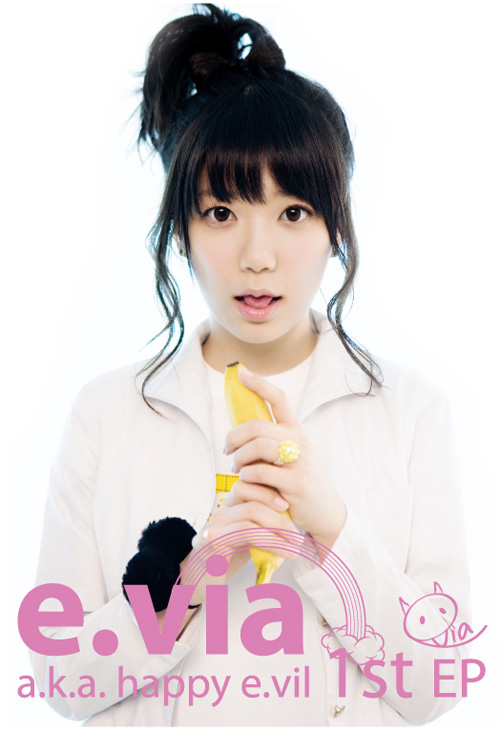 And going back to what Fannie said about kids being absolved more by what they see than what they hear — it’s absolutely true. Shouldn’t MOGEF be thinking about what the image of perpetually overworked and exhausted idols do the minds of young fans? And don’t such awful illustrations of the working standard in the industry get out shined by the glamor of the industry, making it easier for kids to think that idol lifestyles are healthy lifestyles? By allowing industry working standards to exist and by choosing to goafter petty lyrics that any of us hardly ever take to heart ultimately paints an ugly picture of the MOGEF.
And going back to what Fannie said about kids being absolved more by what they see than what they hear — it’s absolutely true. Shouldn’t MOGEF be thinking about what the image of perpetually overworked and exhausted idols do the minds of young fans? And don’t such awful illustrations of the working standard in the industry get out shined by the glamor of the industry, making it easier for kids to think that idol lifestyles are healthy lifestyles? By allowing industry working standards to exist and by choosing to goafter petty lyrics that any of us hardly ever take to heart ultimately paints an ugly picture of the MOGEF.
Young-ji: I think to a certain degree, censorship is what makes K-pop what it is. The lyrics and the concepts within K-pop are not as raunchy and racy, although you have your packaged “sexy” groups in the mix and the ministry helps to maintain K-pop’s PG-13 rating. However, one thing I don’t like about this organization is that it’s really hard to take them seriously. First of all, their banning are sporadic and/or tardy and they rarely provide their rationale for their actions, which just makes it more frustrating to the fans.
I think the intention or the idea of the ministry is acceptable and much needed in fact, but their execution hasn’t been respectable to say the least — not only in terms of their lyrics bans but also in terms of the issues that they don’t seem to influence or try to influence, mentioned by writers previously.
So while they are trying to do good in Korea as well as the global community, I think the end result so far has been perplexing and frustrating to say the least.
Subi: Many of the responses to this week’s roundtable are Western in their perspective. We have seen many instances where and when the people of Korea, specifically the Korean youth are adversely affected by ideas, thoughts, and emotions put forth by the entertainment industry. The Grand Narrative has a plethora of pieces on this issue, the issue of celebrity culture continuing to play a detrimental role for Korean youth, with the series on “Reading the Lolita Effect in Korea” being among my favorites. While many of us might think these instances of censorship are “silly” and/or “unimportant,” we need to think about this fandom. We of all people know this fandom better than anyone and so, we should know that things like the lyrics of a K-Pop song or the moves in a K-Pop dance probably have a greater effect than we think. After all, what came first: the drinking on dramas or the huge drinking culture? Censorship exists not to place limits on freedom but to provide safeguards. On the matter of changing lyrics, changing lyrics, changing scenes, what have you, are standard practice everywhere. These are products that are marketed to the mass public via tv and radio. Sometimes, even if you wanted to avoid them you simply couldn’t and in order to protect the a portion of the public from what they interpret as indecencies, they change the lyrics. It’s like changing lyrics on radio or cutting scenes in a film for TV. It’s either that or the song doesn’t get played and we all know what happens when a song gets flat out banned, don’t we? On the matter of the MOGEF concentrating it’s efforts elsewhere, no one is going to change society but society itself. Every other entity, simply reacts to what they interpret to be societies needs to be. So to concentrate on the actual problems of societies might be even less effective–like preaching abstinence to high school kids in America.
But I also think many of us are ignorant to what the MOGEF is and is not doing. While we may only be hearing about their banning this song and all that jazz, the Ministry does quite a bit and has also achieved quite a bit in the areas of child development and womens’ rights in Korea (they abolished the hojuje and have several laws preventing the sex trade in Korea). But like most public policy institutions, the MOGEF has its faults, all of which Young Ji catalogues quite nicely. The effectiveness of the MOGEF is still up in the air but I think a lot of people are ignorant about this organizations mission, purpose, and activities. They’re not just changing the lyrics to K-pop songs; they do plenty of other things but since that’s the only think netizens seems to care about, it’s the only thing that we ever get wind of. But people shouldn’t underestimate changing lyrics either. While I wouldn’t say it’s necessary and valid in every MOGEF case, it is doing it for the better good.
